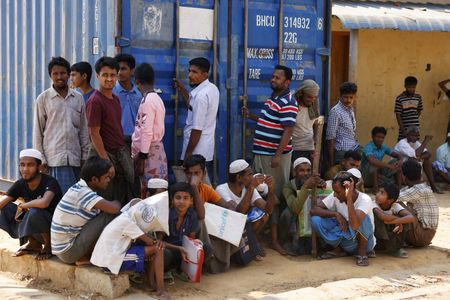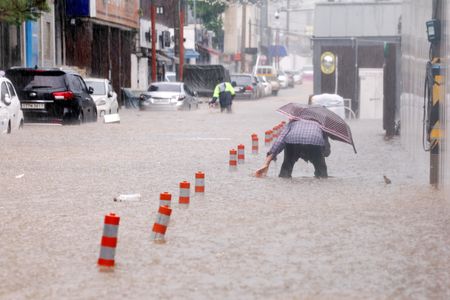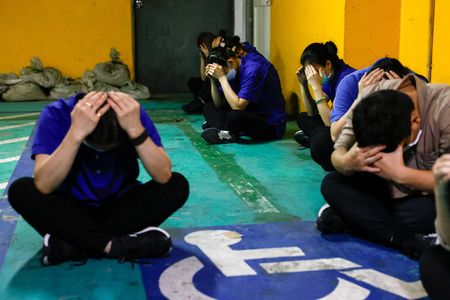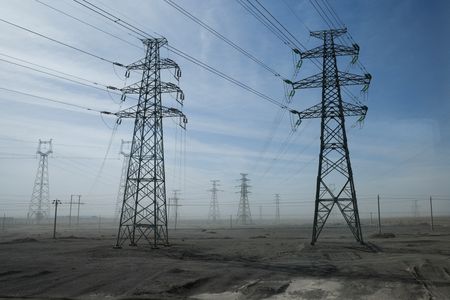By Ruma Paul
KUTUPALONG REFUGEE CAMP, Bangladesh (Reuters) – Majuna Khatun sat cradling her six-month-old baby at a rehabilitation centre for Rohingya refugees in Bangladesh, worried her child would be without critical healthcare due to funding cuts from the United States and some European countries.
“Where will I go if this facility closes?” 30-year-old Khatun said at the centre, where her child, whose tiny feet were strapped into orthopaedic braces, receives physiotherapy for clubfoot.
Bangladesh is sheltering more than 1 million Rohingya – members of the world’s largest stateless population who fled violent purges in neighbouring Myanmar – in camps in the Cox’s Bazar district, where they have limited access to jobs or education.
The decision by the administration of President Donald Trump to halt most foreign aid and dismantle the U.S. Agency for International Development (USAID) has caused turmoil in the humanitarian sector globally and the U.N. has warned that it will create dire conditions for refugees.
At the Bangladesh camps, Rohingya refugees fear the cuts will compound food and health issues and lead to a surge in crime.
“There are fewer doctors now. Rohingya volunteers who supported us have been dismissed. People are suffering because they can’t get the treatment they need,” said Mohammad Sadek, a 24-year-old Rohingya.
The U.S. has been the largest provider of aid to the Rohingya refugees, contributing nearly $2.4 billion since 2017, according to a State Department website.
The freeze on funds has forced five U.S.-funded hospitals to reduce services, Mohammed Mizanur Rahman, Bangladesh’s top official overseeing the refugee camps, said last month.
About 48 health facilities, including 11 primary care centres, have also been affected, leaving many refugees without access to essential care, said Hasina Rahman, Bangladesh country director for the International Rescue Committee.
“Our priority (now) is to protect the most vulnerable, especially women, girls, and children,” she said.
David Bugden, principal coordinator of the Inter-Sector Coordination Group, which oversees NGO efforts at Cox’s Bazar, said around 300,000 refugees have been impacted by disruptions in healthcare services.
Bangladesh’s foreign ministry and the U.S. embassy did not respond to requests for comment.
Gul Bahar’s four-year-old daughter Mukarrama, suffers from cerebral palsy. She has been undergoing therapy for the past three years which has helped improve her condition.
“If this centre shuts down, we’ll lose everything she’s gained. I’ll be back to square one,” said Bahar, 32, her voice trembling.
HUNGER AND CRIME
The U.S. cuts and those by some European countries would worsen already dire conditions for the refugees, U.N. Secretary-General Antonio Guterres warned.
The U.N. World Food Programme (WFP) said it may be forced to halve the amount of food rations to $6 from April due to a funding shortfall, which would amount to 20 cents a day.
A previous round of ration cuts in 2023 that reduced the amount to $8 monthly led to a sharp increase in hunger and malnutrition, the U.N. has said. The cut was later reversed.
“We can’t work outside the camp, and the rations we get are barely enough. If they reduce it further, crime will increase, people will do anything to survive,” said Nojir Ahmad, a father of five, who fled to Bangladesh from Myanmar in 2017.
Rohingya camps have seen an upswing in crimes in recent years, according to police data.
About 70,000 Rohingya from Myanmar fled to Bangladesh last year, driven in part by growing hunger in their home state of Rakhine.
Aid cuts could make refugees more vulnerable to trafficking, radicalisation and exploitation, said a Bangladesh official, who did not want to be named as he was not authorised to speak to the media.
“Our food, healthcare, and education systems are collapsing,” said Mohammad Jubair, a prominent Rohingya community leader. “If this gets out of hand, it won’t just be a problem for Bangladesh – it will become a global issue.”
Shofiul Islam was bedridden after falling from a tree five years ago. The 35-year-old said his world shrunk to the four walls of his shanty until the rehabilitation centre began treating him.
“I couldn’t stand up or even turn in bed… because of them, I can move again,” he said, using a forearm crutch to support himself.
“If it closes, all dreams will be shattered. People like me will have nowhere to turn.”
(Reporting by Ruma Paul; additional reporting by Sam Jahan; editing by Sudipto Ganguly and Saad Sayeed)













